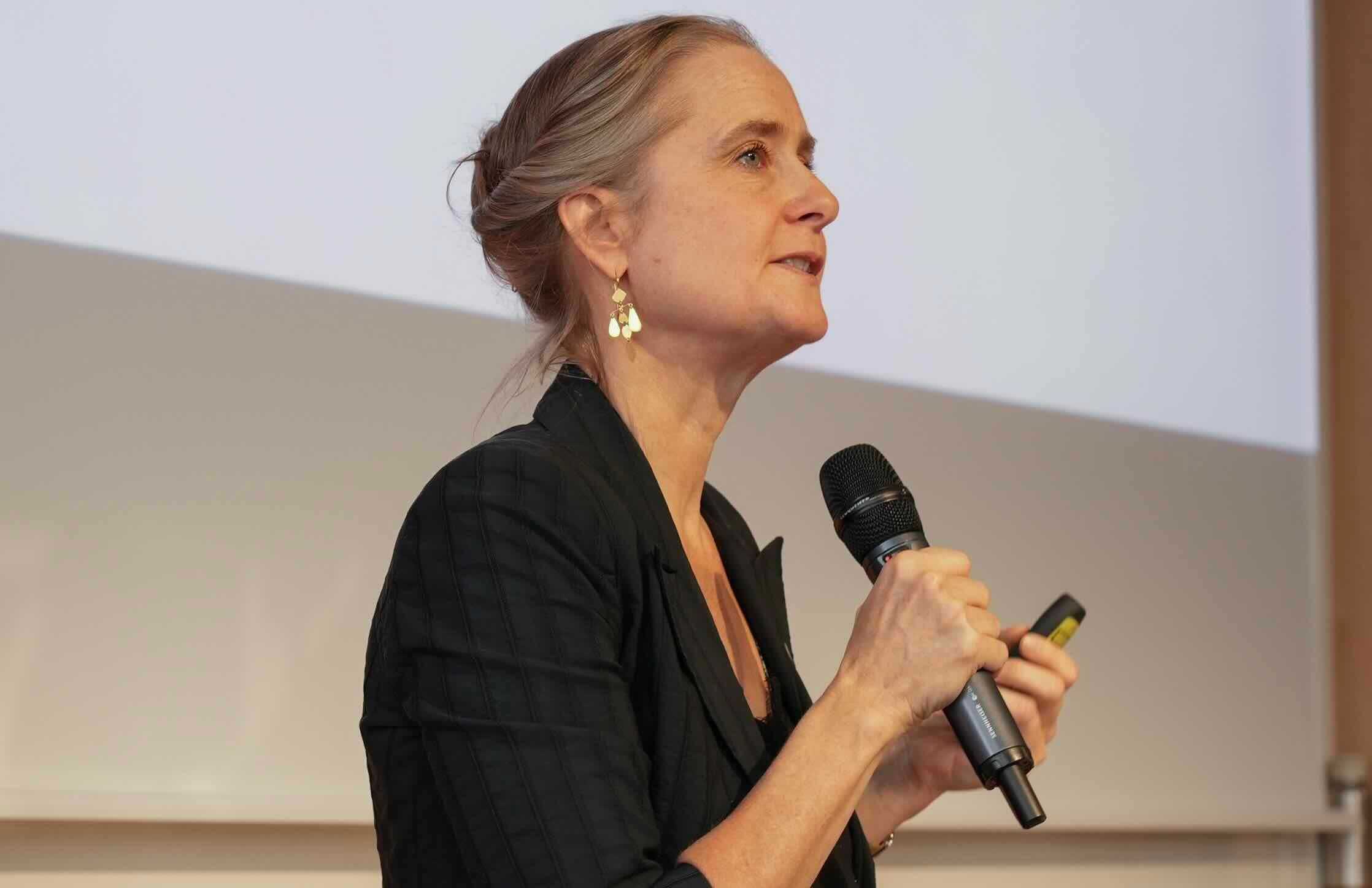Home>Line Vaaben: "The future of journalism in Europe is more existential storytelling"

26.09.2025
Line Vaaben: "The future of journalism in Europe is more existential storytelling"
A award-winning author, journalist and editor at Denmark’s Politiken, where she runs the “existential journalism desk”, Line Vaaben gave the inaugural lecture at Sciences Po Journalism School. She discussed what sets European journalism apart and how storytelling as a form is evolving and attracting wider audiences.
Here are five takeaways from her lecture, which is also available in video replay.
The Power of Human-Centered Journalism
Vaaben’s career began with a transformative assignment: covering an oil spill and its disastrous consequences on the local fauna. She told students about how the sights, sounds and smells she witnessed stay with her to this day. This experience taught her that stories with a human touch, based on observation first, linger with audiences as well as reporters. At Politiken, she leads the “existential desk,” producing narratives about love, loss, and life that connect deeply with readers, proving such stories are not just “nice to have” but essential for engagement and subscriptions. “So, my advice to you is this: Go out, face the world, bear witness, and report with all your senses, your mind, and your heart—with your humanness. It is a huge obligation, but trust me when I tell you, it matters”, she says to the journalists to-be and professional reporters in the audience.
Existential Storytelling as a European Tradition
European storytelling, rooted in existential philosophy (e.g., Søren Kierkegaard’s daily conversation with people, what he called “human baths”), prioritizes introspection, solidarity, and the struggles of ordinary people. “Compared to the US, European storytellers have a less flowery, less dramatic way of telling stories. Less Hollywood, more existential”, says Line Vaaben, whose team of “existential desk” reporters is a unique concept globally. “European storytelling (...) often celebrates the losers or the small person fighting a bigger system—rather than the American archetype story where a superhero saves the world (...). At the core of many European narratives, there is an underlying ideal that a good, sound, and healthy democracy relies on equality and collaboration, rather than survival of the fittest”, she says.
The Human Touch vs. AI: the superpower of journalism
In a new era of artificial intelligence-generated content, Vaaben argues that journalism’s unique value lies in its humanity. Robots cannot replicate the sensory, emotional, and ethical depth of human reporters—whether it’s the smell of an autopsy room or the breathing of a grieving mother. This “human scent” is what makes stories compelling and trustworthy.
Storytelling as Social bond: Lessons from the Agta Tribe
Anthropological research shows that skilled storytellers in the Agta tribe were more valued than even the best hunters, as their stories reinforced social bonds and cooperation. Vaaben draws a parallel:good journalistic storytelling strengthens community bonds and helps audiences interpret the world, making it indispensable to democracy.
The Future: A United European Storytelling Tribe
A“European art of storytelling” is currently rising across the continent through awards, conferences, and cross-border collaborations. Despite linguistic and resource disparities, European journalists share a commitment to narrative depth, ethical reporting, and public service—a proposal that speaks to the audience in a time of misinformation and growing news fatigue.